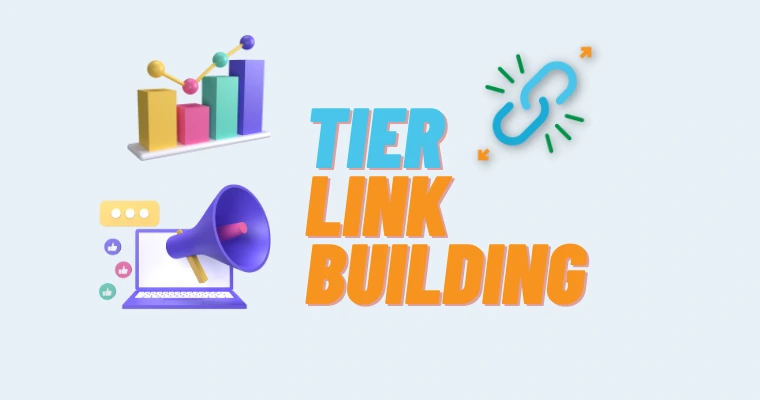

Modern SEO goes beyond keyword research. Discover how today’s SEO professionals act as researchers, strategists, and project managers to drive measurable growth.
SEO is no longer a single-discipline task owned by one person or team. In 2025 the role of the SEO professional has matured into a hybrid of researcher, strategist, and project manager. Modern SEOs need analytical depth, editorial judgment, and the organizational skills to coordinate cross-functional teams and deliver measurable business outcomes. This article explains that evolution, outlines the core responsibilities and skills of today’s SEO, and shows how businesses can benefit when SEO is treated as a strategic function rather than a checklist.
Ten years ago, SEO often meant tactical fixes: on-page keyword placement, link volume, and basic technical cleanup. Today’s search ecosystem is different for three important reasons. First, Google’s quality and helpful-content focus (E-E-A-T and related updates) puts premium value on expertise, experience, authoritativeness, and trust. Second, the rise of zero-click experiences and AI-driven SERP features (summaries, overviews, snippets) means users often get answers without visiting a site. Third, organizations expect SEO to deliver measurable ROI—not just rankings—so SEO work must be tied to conversions, retention, and revenue. Practitioners who can connect search insights to product, content, and UX decisions are the ones who drive real business value. For context on the brand-and-zero-click shift, industry leaders recommend thinking beyond rank to visibility, memorability, and integrated channel strategies.
Research is the backbone of every strategy. Modern SEO research includes user intent mapping (who the searcher really is and what they want), close SERP feature analysis (which queries trigger snippets, shopping, or AI overviews), competitive backlink and content audits, and trend monitoring. This level of research makes it possible to prioritize content that will actually move the needle—whether that means earning a high-value organic click or appearing as a trusted source inside an AI-generated overview.
Strategy translates research into a plan that supports business objectives. The strategist defines which pages to create or optimize, which intent to prioritize (brand vs. transactional), what content formats to use (interactive tools, long-form research, comparison content), and the outreach/link strategy that will drive authoritative signals. Strategy also maps KPIs to business outcomes—so teams measure revenue per visitor, assisted conversions, and organic contribution to retention, not only search position.
Even the best strategy fails without effective execution. As project managers, SEOs create timelines, assign responsibilities, and shepherd technical work, content production, and QA. They integrate SEO work into release cycles, communicate change impacts to stakeholders, and ensure measurement is in place before changes go live. Strong process and tool usage (e.g., Asana, Trello, or Monday.com combined with dashboards in GA4 and Looker Studio) is what turns plans into growth.

Success in this hybrid role requires a balanced skill set. Practically speaking, every modern SEO benefits from:
If you want to prioritize where to upskill first: focus on data literacy and EEAT-driven content practices. These two move the biggest business levers when paired with solid execution.
When SEO functions as a strategic, cross-departmental capability rather than an isolated task, organizations see multiple benefits. Content investment becomes more efficient because topics are chosen to support conversions and product goals. Execution is faster because project management reduces blockers. Technical and UX work improves engagement metrics and lowers churn. Finally, SEO-informed product decisions (pricing pages, onboarding copy, help centers) create better end-to-end experiences that compound over time.
The SEO community has been candid about the role’s expansion. Experts emphasize that rank-chasing alone is outdated—brand, content utility, and measurable business outcomes are the new currency.
Aleyda Solís, a veteran international SEO consultant, notes that strategies built solely for ranking are already behind and that SEOs must adapt to be visible in an “AI-first” world. Her public commentary underscores the importance of strategy, testing, and cross-functional work.
Rand Fishkin (SparkToro) has similarly framed the shift as an opportunity to rethink where influence happens—direct site visits are one outcome among many and brands should invest in discoverability and memorability across platforms, not just organic rank. The “zero-click” and AI-era view of search means marketers must prioritize brand signals and alternative channels as part of a modern SEO plan.
Lily Ray, an expert in E-E-A-T and search quality, regularly reminds SEOs that demonstrating credible expertise and authoritativeness is central to long-term success—especially in YMYL and high-stakes verticals where quality signals matter most. Her guidance aligns with best practices for authorship, citations, and transparent editorial policies.

You asked for real testimonial/review content — below are short, verifiable customer quotes from LinkDaddy’s Trustpilot and site listings. These are real customer statements available publicly; include them as social proof in the post or on a case-study block.
The modern SEO role is broader and more strategic than ever: researchers produce insights, strategists map high-impact opportunities, and project managers ensure execution and measurement. That combination is what moves business metrics—not just rankings.
How LinkDaddy supports that modern SEO workflow: LinkDaddy is a backlinks-first SEO provider that also supports broader visibility and EEAT efforts through press release distribution, schema/local citation work, and managed link programs. If your team needs support converting SEO insights into prioritized action, LinkDaddy’s services can augment internal capabilities by strengthening off-site authority, amplifying brand mentions, and providing monitoring and deliverables that plug into your project calendar.
Data literacy: being able to measure intent, segment queries, and link results to business outcomes is the highest-leverage skill for modern SEOs.
Add business metrics (conversions, revenue per visitor, assisted conversions, branded search lift) to classic SEO KPIs (rankings, impressions, organic sessions).
Yes—when used as part of a prioritized roadmap. Off-site authority work (links, citations, mentions) helps with long-term EEAT and discoverability, especially when paired with strong on-site content and measurement.



